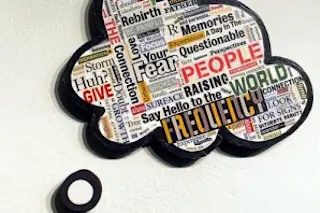Photo: flickr/Chicago Art DepartmentDo you suffer from fear of public speaking? Do you dread having to make a good first impression? If so, this study is for you! Apparently, the words you use to talk to yourself could have a big impact in how you handle stressful social situations. More specifically, talking to yourself in third person and using your own name (e.g.,"Jane did a pretty good job in that presentation.") was associated with less social anxiety than using first person (e.g., "I did a pretty good job on that presentation.") because it allowed people to distance themselves during introspection. Just be careful that you don't start referring yourself in third person out loud -- that's just weird.Self-talk as a regulatory mechanism: how you do it matters. "Does the language people use to refer to the self during introspection influence how they think, feel, and behave under social stress? If ...
Study reveals one simple trick to reduce social anxiety.
Overcome your fear of public speaking by using third person self-talk to reduce social anxiety and improve performance.
More on Discover
Stay Curious
SubscribeTo The Magazine
Save up to 40% off the cover price when you subscribe to Discover magazine.
Subscribe













